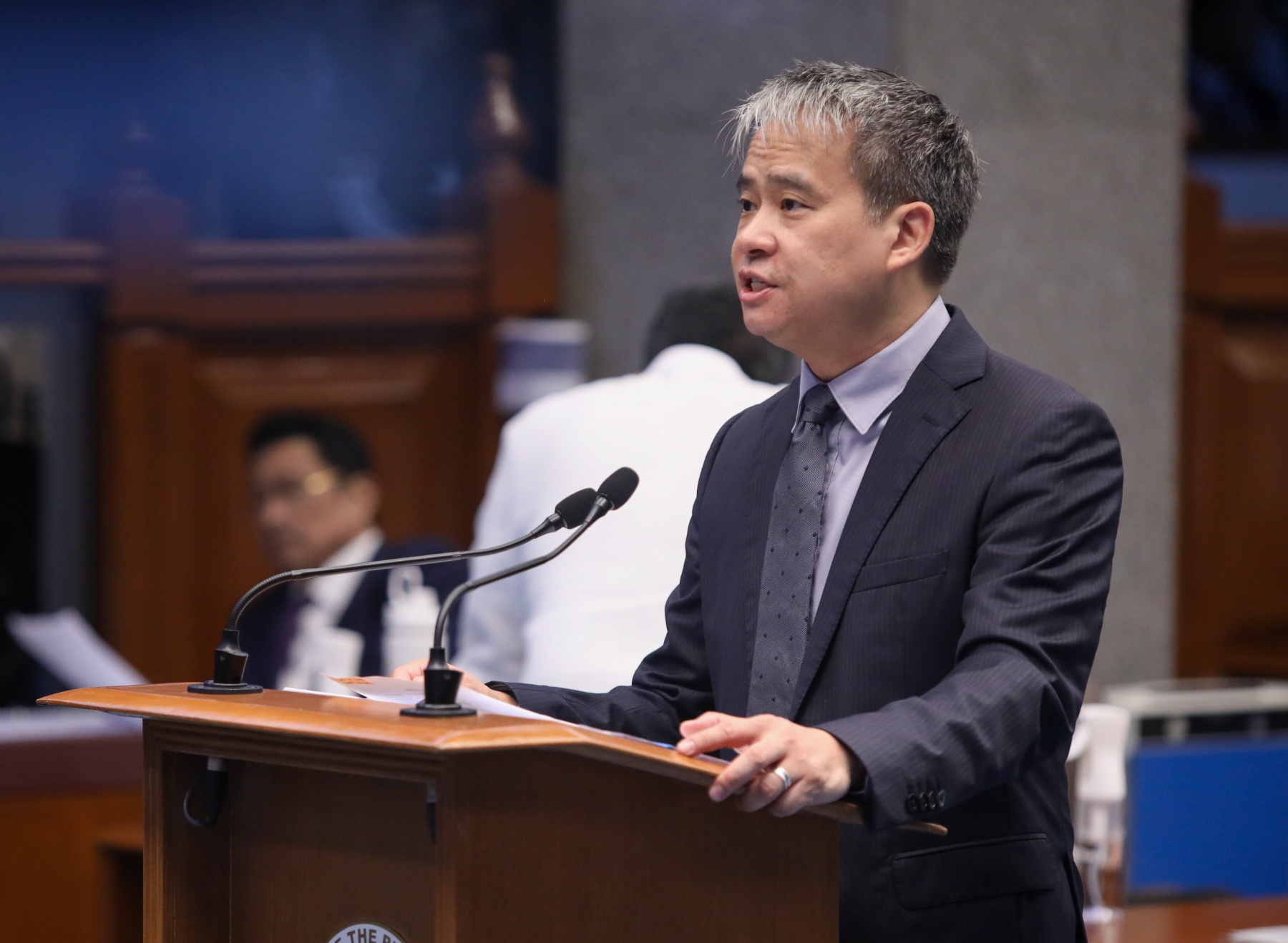
FILE PHOTO: Senate Majority Leader Joel Villanueva. Photo from Senate PRIB
Senate Majority Leader Joel Villanueva on Friday urged the government to break up the “mafia” within the Land Transportation Franchising and Regulatory Board (LTFRB) amid the government modernization program.
The senator made the appeal after jeepney operators and drivers in his home province of Bulacan complained that they were duped into buying electric jeepneys to comply with the government’s jeepney modernization program.
The program does not require electric vehicles, but does require vehicles compliant with the Euro 5 emission standard. Both types are more expensive than old-style jeepneys, but are friendlier to the environment and public health.
READ: Jeepney phaseout: It’s more than just new vehicles
To prevent such scams, Villanueva urged the Senate to exercise oversight functions over the modernization program to prevent corruption.
“Even before the modernization plan, there were already many mafias and fixers lurking around the LTFRB,” Villanueva told reporters in an online interview.
“What’s important is that we protect our countrymen while those corrupt officials and members of the mafia should be identified and be made liable,” he said.
He said the Bulacan group was allegedly forced to form a cooperative and buy at least 15 units of electric jeepneys, worth around P36 million.
One group of suppliers
After purchasing the vehicles, however, the group was told they could not operate since the local government had not approved the routes for their franchises.
Jeepney drivers and operators in Pampanga and Sorsogon complained of the same thing, the senator said.
Villanueva said transport groups were forced to buy from two or three different suppliers when there was actually just one group of suppliers.
But the drivers and operators soon faced problems after buying their “modern” jeeps and had no choice but let banks repossess their units.
Villanueva said he supports the government’s modernization plan, but this should be done with proper consultation and a comprehensive plan.
Nonetheless, the senator echoed President Ferdinand Marcos Jr.’s call for public transport groups to cancel their planned weeklong transport strike.
READ: Jeepney groups shun talks; strike plan gains backers
The President himself said he was open to revisions in the program, but maintained that modernization was really the order of the day.
“On modernization, I think we should do that. But after studying the law, I don’t think it was implemented well,” Marcos said at the Rizal Park in Manila on Wednesday.
“Tignan natin (Let’s see),” the President continued. “Maybe we can modify the implementation to lessen the program’s financial impact.”
READ: Week-long transport strike on March 6 will continue, says Manibela
The President conceded that many people will of course suffer if they lose their livelihood, particularly at a time when the country is fighting price inflation.
But, on Friday, Marcos said the government would push through with modernization, particularly mass transportation, like trains.
P873-B rail project
“We recognize the fact that an efficient transportation system will have a multiplier effect on employment and on the economy,” he said at the contract signing of the North-South Commuter Railway System on Friday.
Once completed, the project is expected to reduce the travel time between Clark International Airport and Calamba City, Laguna, from four to two hours.
READ: Bongbong Marcos vows to modernize, improve PH transportation system
The North-South Commuter Railway System is a 147-kilometer railway with 35 stations that can accommodate 800,000 passengers per day.
The P873.62-billion project will be co-financed by the Japan International Cooperation Agency and the Asian Development Bank.